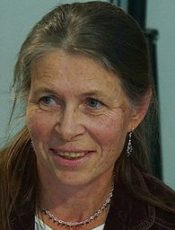The sheer number of refugees arriving in Germany speaks for itself. The Bavarian minister for social affairs, Emilia Müller (CDU) admitted that «a record for all time» has been set in her region, with 79,000 requests for asylum in July alone. But that was back in July, and according to the same ministry, so far in September an average of 2,000 refugees have been arriving daily in the Bavarian capital of Munich.
The interior minister of North Rhine-Westphalia, Ralf Jaeger, said that his region had received more asylum applications in the first seven months of 2015 than had previously been filed in all of Germany over the course of a year. The country is being hit with a tsunami.
West Germany took in millions of refugees after WWII. Many of them actually ended up in Bavaria, which is why societies such as the Sudeten German Homeland Association (Bohemian Germans), the Association of Saxons (Hungary Germans), and the Association of Germans from Transylvania (Romania) – all of which are organizations within the Federation of Expellees – are still «registered» there. Today German politicians try to encourage their fellow citizens with pep talks: at one time our grandfathers were able to cope with this and therefore, we too can accept these refugees. However, in fairness it should be remembered that in those difficult post-war years, which are now so easy to romanticize, the locals had no enthusiasm whatsoever for welcoming these «aliens» from Central and Eastern Europe, or even for those coming from East Germany. Moreover, Günter Grass observed that even when it came to their own compatriots who had been relocated by the Nazis at the beginning of the war and sent to places that had been specially «liberated» from the Poles who had been living there, the Germans still considered those returnees to be aliens.

But there is another, more relevant reason why this comparison with the post-war era seems inapt. The biggest difference between that time and today stems from the differences between ethnic German refugees and the current tsunami of Muslim migrants. The latter are strongly opposed to the idea of integrating into European society. And it is not only the migrants themselves who do not want to integrate, but also their children and grandchildren who were born in Germany.
Recently an article was published by Gerhard Schröder, in which the former chancellor explains his underlying view of the migration issue, which is that Germany must accept migrants for economic reasons. Under his administration, the government succeeded in easing the legal requirements for immigration, in keeping with the premise that Germany must follow the example of the United States because it needs workers. Schröder spearheaded the introduction of a German version of the American green card. The «Blue Card» is issued to highly-qualified workers specializing in fields that are difficult to staff in Germany (introduced in Germany in 2012). The opposition party, the Christian Democrats, blocked Schröder’s initiative at the time, but once in power they unabashedly moved to implement his idea.
Raimund Becker, a spokesman for the Federal Employment Agency, has already proposed a simplification of the procedure for issuing Blue Cards to refugees who are qualified professionals, such as doctors or engineers. But are there many refugees who fit this description? According to the German minister of internal affairs, 20% of adult refugees are illiterate. Nevertheless, Ulrich Grillo, the president of the Federation of German Industries, said: «If we can integrate them quickly into the jobs market, we'll be helping the refugees, but also helping ourselves as well». It is clear that business owners are counting on a source of low-skilled labor, whose greatest asset is that they are cheap and tractable.

However, ordinary Germans typically have grave doubts about whether the refugees will work for the common good of their country once they arrive in Germany. The system is designed so that anyone who receives an established level of guaranteed social benefits no longer has any particular need to work at all.
Ultimately there is yet another complication that affects the German approach to the migration issue – the question of how to pay for public pensions, which is a serious problem because of the rapidly aging German population. According to recent surveys, by 2050 it will be virtually impossible to finance pensions using the existing approach for generating the pension fund. So is the population of Germany to be «rejuvenated» using Asians and Africans? Politicians have not offered any other suggestions. Germany has instituted a demographic program, but no one seriously expects it to be very effective. Some have suggested emulating the Japanese, who have managed to boost the birth rate in their own country, but in truth the Germans should not have to look so far afield: the German Democratic Republic managed to reinvigorate its total fertility rate by providing social support to families with children.
But that did not last long: this undeservedly forgotten, but real achievement of real socialism was trampled under the march of history. However the propaganda machine does not miss any opportunity to bash that socialist German state, which, in the heat of the debate about the behavior of migrants, has been blamed for having inculcated a spirit of hatred in its citizens toward foreigners: the attacks on dormitories and camps housing refugees allegedly occur mainly in the East.
German society, as well as Europe as a whole, is changing. Having opened its doors to a growing number of migrants from Asia and Africa, society will start to change more quickly and probably more dramatically. What kind of world will Europeans live in tomorrow? Any prediction based on the continuation of current trends would obviously be misleading. Life will devise its own solution. And many people are frightened of what that might be.









